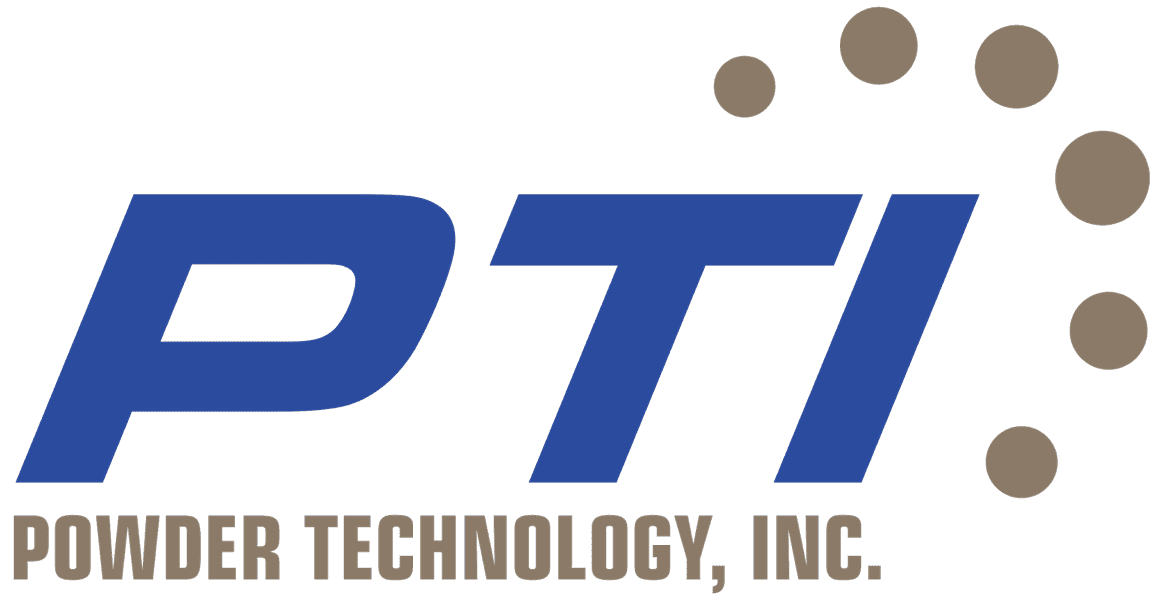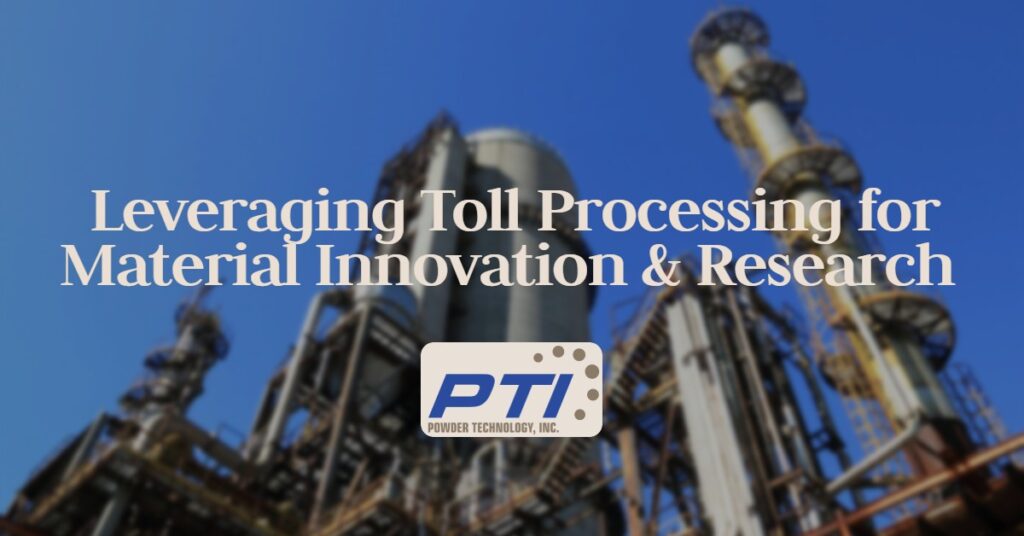In today’s competitive industries, innovation is essential to staying ahead. Developing new materials or enhancing existing ones can set a company apart in industries like agriculture, automotive, construction, aerospace, and many more. However, the research and development (R&D) phase for new materials often requires expensive, specialized equipment and highly controlled environments, making it challenging and costly for companies to handle in-house. This is where toll processing becomes invaluable, allowing companies to experiment and innovate without the heavy financial burden of investing in dedicated facilities or equipment. Toll processors, like us at Powder Technology Inc. (PTI), offer expertise, flexibility, and precision equipment that can accelerate material innovation and streamline R&D efforts.
Access to Specialized Equipment and Expertise
One key advantage of toll processing in material innovation is access to state-of-the-art equipment and specialized expertise. Toll processing companies are equipped with sophisticated machinery required for precise particle size reduction and mixing. These processes are essential in producing materials with consistent particle sizes and specific characteristics that meet industry standards.
Creating advanced materials often requires precise particle size manipulation to enhance properties like solubility, dispersion, or reactivity. Our toll processing team has extensive experience with various materials—from ceramics and minerals to abrasives, carbons, and graphite, as well as specialty chemicals. You can explore more of our capabilities on our Toll Processing Capabilities page. With our expertise, we help companies choose the best processes and equipment to achieve their desired material qualities.
Flexibility in Experimentation
R&D teams often try various formulations and methods to find the ideal product. PTI offers the flexibility to target different particle sizes, material combinations, and blending techniques without requiring major financial or operational commitments. This agility allows companies to adjust and refine their formulas, speeding up the path to an optimal solution.
For example, in industries such as battery technology, agriculture, paints/coatings, and more, reducing particle size can enhance absorption rates, improve texture, increase surface area, speed up reaction rates, and optimize application properties. The ability to experiment with particle size reduction techniques (like jet milling, orbital milling, or hammer milling) can make a substantial difference in product efficacy. This approach allows companies to refine and innovate products in ways that might be challenging to replicate in-house.
Cost-Efficient Innovation
Innovation can get expensive, especially when scaling up new processes. Toll processing helps eliminate the need to buy and maintain specialized equipment for each R&D project. This allows companies to focus resources on product development instead of facility maintenance, personnel training, and equipment costs.
Additionally, toll processing allows companies to produce pilot-scale quantities for testing and regulatory approvals without committing to a full production line. This “scale as you go” approach lets companies test materials in small batches, refine their processes, and make data-driven decisions before moving to large-scale manufacturing. This approach can be more economical and flexible, making innovation more affordable and accessible to businesses of all sizes.
Accelerated Time to Market
In competitive industries, speed is crucial for gaining a market edge. Toll processing helps companies quickly move from concept to prototype by outsourcing complex processes to experts who ensure efficient, high-quality results. By utilizing a toll processor’s resources, businesses can shorten their R&D timelines and accelerate product launches.
For example, in industries like battery manufacturing, where advancements in technology are rapidly evolving, toll processing allows companies to experiment with different materials, particle sizes, and coatings. This speed can be crucial for brands looking to capitalize on market trends without compromising quality.
Additionally, when companies reach max capacity toll processing provides a critical solution to meet surges in customer demand. Partnering with a toll processor like PTI helps meet increased demand, avoid bottlenecks, and maintain customer satisfaction without needing to invest in more infrastructure.
Conclusion
Toll processing serves as a powerful resource for companies looking to optimize their material innovation. By offering access to specialized equipment, technical expertise, and the flexibility to experiment at a lower cost, toll processors like PTI empower businesses to explore new ideas and accelerate the R&D process. For companies that want to innovate without overextending resources, partnering with a toll processor can be the key to unlocking their next breakthrough.
Please contact our Sales & Marketing Coordinator, Carter Anderson, at 952-894-8737 or e-mail sales@powdertechnologyinc.com to discuss how we can help with your company’s toll processing needs.






